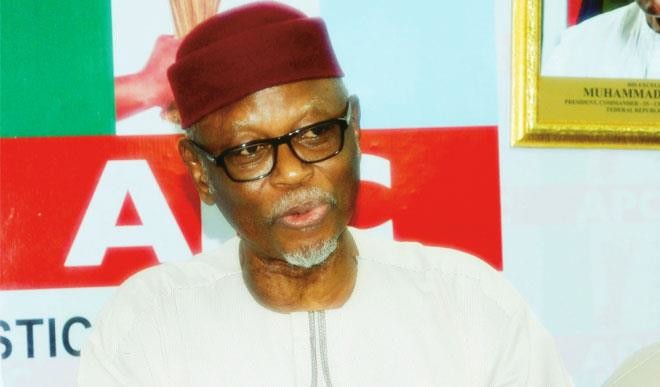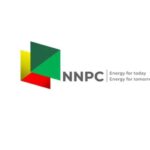
Not a few feathers were ruffled around the country over the composition of the newly appointed Board of Directors of the Nigerian National Petroleum Corporation (NNPC) with commentators divided on the merits and otherwise of the exercise. For instance one school of thought belly-ached over what they see as crass lop-sidedness of the membership and support their claim with the fact that six out of the nine names came from only a section of the country. Meanwhile another lobby counters that the appointees were deserving of their appointments given the personal credentials of each of them. And in fairness to the second lobby, some of the appointees parade intimidating credentials that any employer searching for quality persons for the positions under consideration, will find difficult to gloss over.
Just as well, one of the twists in the exercise is the appointment of Mallam Abba Kyari the Chief of Staff (COS) to the President Muhammadu Buhari, as a member of the Board. Concerns over his appointment are spawned by several factors. Firstly, is the one question on many lips, which is whether the gentleman can effectively combine the duties of COS to a reform minded President Buhari while overlapping as a full time member of the Board of Directors of the NNPC, given its complement of daunting challenges associated with transforming the nation’s oil and gas sector. This question is without prejudice to whatever superhuman dexterity which Abba Kyari possesses for making short work of multi-tasking assignments.
The appointment of the COS attracts even more public misgiving due to the fact that the substantive Minister of Petroleum Resources is the President himself. By implication therefore, both the President and his COS are now involved in the direct running of the petroleum sector, in addition to other equally demanding national assignments. By implication therefore, the nation’s fortunes as far as the oil and gas sector is concerned, are now a closet affair of Mr President and his COS, along with perhaps any other member of his kitchen cabinet who may be so disposed to assume a role in calling the shots accordingly.
While such a dispensation may seem ‘usual’ for any of the hundreds of agencies of the federal government, the same cannot be said of the NNPC, given the strategic place it occupies in the economy and socio-political terrain of the country. Firstly, the corporation is the apex agency in the management of the nation’s cash cow – the oil industry, hence it carries the aspiration of every Nigerian for brighter economic wellbeing, in its bowels. In that respect, changes in its leadership cannot take place without the Nigerian public expressing more than a passing interest in the exercise. It should therefore be preceded by a modicum of wide consultation with relevant stakeholders to confer on the eventual appointees some semblance of representativeness of the spectrum of relevant interests in the country. Given the sudden emergence and disturbing composition of the new NNPC board, trending views in the public space betray the fact that the President may have kept the exercise close to his chest and away from the Nigerian public.
Secondly, in superintending the ever effervescent oil sector, the Corporation has the unenviable duty of finding a meeting point with every stakeholder in the industry, each of which is championing one cause or the other including the call for locals to control the resources within their locality. In the context of this situation, a change in the leadership of the agency could have benefited from the safety valve of more discretional, national spread of the new board members.
Thirdly and perhaps most importantly, the reform of the nation’s oil industry has been a subject of intense public debate both within and without its borders leading to the emergence of the Petroleum Industry Bill (PIB) which is seen largely as the magic wand to address the thorny issues in the industry. Given that the PIB proffers significant changes in the role of the NNPC vis-a-vis the expected new order in the industry, public expectation has been that the Buhari administration should have long addressed itself to the issue of whether PIB will be or not. Rather the administration has since its advent been launching one cosmetic initiative or the other with respect to the oil sector, with the recent controversial change in the board of the NNPC serving as the latest turn in the unfolding drama of Buhari’s dalliance with the Nigerian oil sector. This is just as the National Assembly is yet to conclude proceedings on fine tuning the PIB into a deliverable for the benefit of Nigerians.
Yet an angle to the NNPC show is the question of by how much this change of guard, along with several other past actions of Mr President reflect inputs from the All Progressives Congress (APC), the ruling political party on whose platform he came into office. Can the party hierarchy beat its chest that the membership of the new NNPC enjoys its endorsement, especially against the backdrop of the outcry by sections of the country over the perceived lopsidedness? As a party that came on stream with the mantra of change, the least that is expected of it is to foster the spirit of belonging for every Nigerian. And given the unique history of the country, appointments into sensitive federal offices provide any administration the opportunity to demonstrate that it means to carry everybody along.
It is often in the style of change agents in a system to dispense with ideas that do not fit into their mindset and are not of their creation, out of mistrust of such or the sponsors of same. This is often in order to enable them remain fully and solely in charge as well as responsible for outcomes of their initiatives. Buhari’s actions so far have tended to reflect this mindset. For instance the process and timing of selecting ministers to serve in the cabinet typified that disposition. Another incident was the drama over alleged ‘budget padding’. In all of these developments hardly was the role of the APC as a party felt beyond a few unconvincing chants of solidarity by its spokespersons. Otherwise, the Buhari administration has more or less been a one man show in the eyes of many Nigerians, and this is not only antithetical to the democratic dispensation in the country, but is at variance with what Nigerians voted for.
Granted that since its ascendancy to power, the APC has demonstrated in clear terms and in several areas that it is having a crisis in managing its success. Taken in context, there are several developments associated with the party that indicate that it is systemically distracted from getting its act together. The advent of the new NNPC board is just one of the instances whereby the country is denied the benefit of viable, broad-based stakeholder-driven reforms through the political party structure of the APC.
Nigerians did not vote for a scenario whereby the APC party structure and the President shall be heading in different directions. But if that is the best the APC can provide for Nigerians, then its agenda for ‘Change’ has become compromised and needs to be rejigged. How about a new mantra of ‘Change the Change’ for the APC, to facilitate its reinvention?

 Join Daily Trust WhatsApp Community For Quick Access To News and Happenings Around You.
Join Daily Trust WhatsApp Community For Quick Access To News and Happenings Around You.


